Atmospheric Perspective
January 2022
|Artists & Illustrators
Figure Drawing author Jake Spicer continues his series on creating a sense of space in your drawings by looking at ways to employ this naturally occurring effect

Particles in the air scatter light, so that when light reflects off a distant subject into our eyes, the amount of air it has to travel through will affect how clearly it can be perceived.
When the air is dense with smog or water vapor, even relatively nearby subjects will appear indistinct. The tonal values of farther subjects will tend towards a mid-tone, while nearer subjects retain a broader tonal range of light lights and dark darks.
On a clear day, it will take a much greater distance for atmospheric perspective to have an effect, playing out across many miles and giving rise to the increasingly indistinct tonal values of a receding landscape.
Across these distances the second effect of atmospheric perspective comes into play - as well as being less tonally distinct, more distant subjects appear bluer than their nearer counterparts. This is for the same reason that the sky often appears blue: the participles in our atmosphere scatter shorter wavelength blue light most readily, the light from distant mountains will be mixed in with the blue light scattered by the air in between. The more air you are looking through, the bluer and less tonally distinct your subject will appear.
We can of course use this knowledge to help us recognize these visual effects when they occur in a landscape, but we can do much more than that. In this article, we're going to look at how you can apply the visual cues of atmospheric perspective to imply depth in spaces where we wouldn't normally observe its effects.
هذه القصة من طبعة January 2022 من Artists & Illustrators.
اشترك في Magzter GOLD للوصول إلى آلاف القصص المتميزة المنسقة، وأكثر من 9000 مجلة وصحيفة.
هل أنت مشترك بالفعل؟ تسجيل الدخول
المزيد من القصص من Artists & Illustrators

Artists & Illustrators
Still life IN 3 HOURS
Former BP Portrait Award runner-up FELICIA FORTE guides you through a simple, structured approach to painting alla prima that tackles dark, average and light colours in turn
5 mins
March 2022
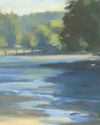
Artists & Illustrators
Movement in composition
Through an analysis of three masterworks, landscape painter and noted author MITCHELL ALBALA shows how you can animate landscape composition with movement
6 mins
March 2022
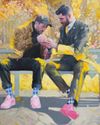
Artists & Illustrators
Shane Berkery
The Irish-Japanese artist talks to REBECCA BRADBURY about the innovative concepts and original colour combinations he brings to his figurative oil paintings from his Dublin garden studio
7 mins
March 2022
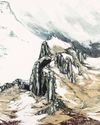
Artists & Illustrators
The Working Artist
Something old, something new... Our columnist LAURA BOSWELL has expert advice for balancing fresh ideas with completing half-finished work
2 mins
March 2022
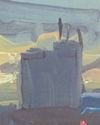
Artists & Illustrators
Washes AND GLAZES
Art Academy’s ROB PEPPER introduces an in-depth guide to incorporating various techniques into your next masterpiece. Artwork by STAN MILLER, CHRIS ROBINSON and MICHELE ILLING
7 mins
March 2022

Artists & Illustrators
Hands
LAURA SMITH continues her new four-part series, which encourages you to draw elements of old master paintings, and this month’s focus is on capturing hands
7 mins
March 2022

Artists & Illustrators
Vincent van Gogh
To celebrate The Courtauld’s forthcoming landmark display of the troubled Dutch master’s self-portraits, STEVE PILL looks at the stories behind 10 of the most dramatic works on display
6 mins
March 2022
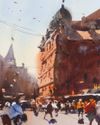
Artists & Illustrators
BRING THE drama
Join international watercolour maestro ALVARO CASTAGNET in London’s West End to paint a dramatic street scene
7 mins
March 2022
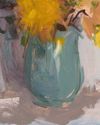
Artists & Illustrators
Serena Rowe
The Scottish painter tells STEVE PILL why time is precious, why emotional responses to colour are useful, and how she finds focus every day with the help of her studio wall
8 mins
March 2022
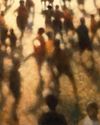
Artists & Illustrators
Bill Jacklin
Chatting over Zoom as he recovers from appendicitis, the Royal Academician tells STEVE PILL about classic scrapes in New York and his recent experiments with illustration
8 mins
March 2022
Translate
Change font size

